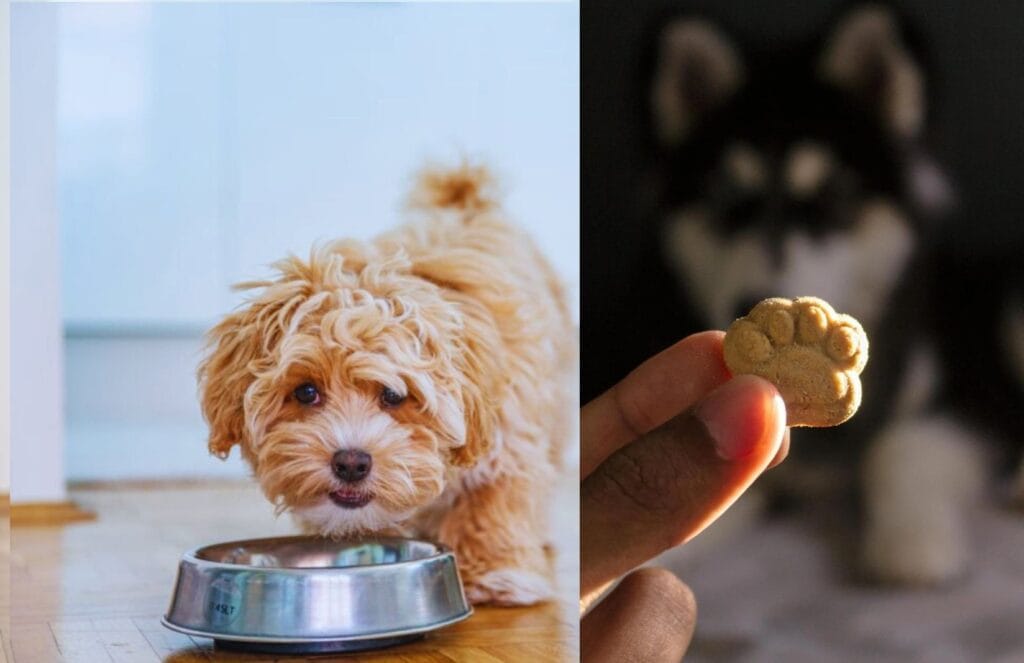A healthy poodle is a happy poodle, and a happy poodle is less likely to engage in problematic behaviors. Understanding your poodle’s health needs throughout their life stages is crucial for preventing and addressing issues that may manifest as naughtiness. Let’s explore the health considerations for poodles from puppyhood to their golden years:

Puppyhood (0-1 year): Building a Strong Foundation
During this crucial stage, your poodle is developing rapidly both physically and mentally. Key health considerations include:
- Vaccinations: Follow your vet’s recommended vaccination schedule.
- Parasite Prevention: Regular deworming and flea/tick prevention are essential.
- Nutrition: High-quality puppy food formulated for their size (Standard, Miniature, or Toy).
- Teething: Provide appropriate chew toys to soothe sore gums and prevent destructive chewing.
- Spaying/Neutering: Discuss the best time for this procedure with your vet.
Puppy Health and Behavior
Many puppy behaviors that seem naughty are often related to their developmental stage or health:
- Excessive chewing: Could be related to teething or exploration.
- Frequent urination: Might indicate a urinary tract infection or simply an underdeveloped bladder.
- Hyperactivity: Often normal for puppies, but could also indicate insufficient mental or physical stimulation.
Adolescence to Adulthood (1-7 years): Prime of Life
As your poodle matures, their health needs evolve:
- Regular Check-ups: Annual vet visits for examinations and vaccinations.
- Dental Care: Regular teeth brushing and professional cleanings as recommended by your vet.
- Nutrition: Transition to adult dog food appropriate for their size and activity level.
- Exercise: Consistent physical activity to maintain a healthy weight and mental well-being.
- Grooming: Regular grooming to prevent matting and skin issues.
Adult Health and Behavior
Health issues in adult poodles can sometimes manifest as behavior changes:
- Sudden aggression: Could indicate pain or discomfort.
- Increased anxiety: Might be a sign of vision or hearing loss, especially in older adults.
- Changes in appetite or water consumption: Could signal various health issues, including diabetes or kidney problems.
- Excessive licking or chewing: May indicate allergies, skin infections, or joint pain.
Senior Years (7+ years): Golden Age Grace
As poodles enter their senior years, they require special care to maintain their quality of life:
- More Frequent Check-ups: Bi-annual vet visits to catch age-related issues early.
- Adjusted Diet: Senior dog food to support aging joints and organs.
- Gentle Exercise: Maintain activity, but adjust intensity to suit their changing physical needs.
- Dental Care: Continued focus on oral health to prevent pain and systemic issues.
- Cognitive Support: Engage in mental stimulation activities to support brain health.
Senior Health and Behavior
Many behavior changes in senior poodles are related to age-associated health issues:
- House soiling: Could indicate urinary incontinence or cognitive decline.
- Increased irritability: Might be due to chronic pain from conditions like arthritis.
- Disorientation or confusion: Could be signs of cognitive dysfunction syndrome (doggy dementia).
- Reluctance to exercise: May indicate joint pain or heart issues.
Health Issues Common to Poodles
While poodles are generally healthy dogs, they are prone to certain genetic health issues. Being aware of these can help you catch potential problems early:
| Health Issue | Symptoms | Typical Age of Onset |
|---|---|---|
| Hip Dysplasia | Limping, difficulty rising | Any age, often middle to older age |
| Progressive Retinal Atrophy | Night blindness, eventual complete vision loss | Usually middle age |
| Addison’s Disease | Lethargy, gastrointestinal issues, collapse | Any age |
| Bloat (Gastric Dilatation-Volvulus) | Distended abdomen, unsuccessful attempts to vomit | Adult to senior, more common in Standard Poodles |
| Epilepsy | Seizures | Usually young adult to middle age |
| Hypothyroidism | Weight gain, lethargy, skin issues | Adult to senior |
The Impact of Health on Behavior
It’s crucial to remember that many behavior issues in poodles can be traced back to health problems. Here’s a quick reference guide:
| Behavior Change | Potential Health Causes |
|---|---|
| Increased aggression | Pain, thyroid issues, cognitive decline |
| Excessive barking | Hearing loss, cognitive issues, pain |
| Lethargy | Hypothyroidism, heart issues, pain |
| Increased anxiety | Vision or hearing loss, cognitive decline |
| House soiling | Urinary tract infections, incontinence, cognitive issues |
Preventive Care: The Key to a Healthy Poodle
Maintaining good health is often easier (and less expensive) than treating problems. Here are some key preventive care measures:
- Regular Vet Check-ups: Annual or bi-annual, depending on age.
- Dental Care: Daily tooth brushing and professional cleanings as recommended.
- Proper Nutrition: High-quality food appropriate for your poodle’s size and life stage.
- Weight Management: Maintain a healthy weight to prevent joint issues and other health problems.
- Exercise: Regular physical activity tailored to your poodle’s age and health status.
- Mental Stimulation: Engage your poodle’s mind to support cognitive health.
- Grooming: Regular grooming to prevent skin issues and check for abnormalities.
When to Seek Veterinary Care
While some behavior changes are normal as your poodle ages, others warrant a trip to the vet. Seek professional help if you notice:
- Sudden changes in behavior or personality
- Loss of appetite or increased thirst
- Difficulty with mobility
- Changes in bathroom habits
- Excessive vocalization
- Signs of pain or discomfort
Remember, your poodle can’t tell you when they’re not feeling well. As their caregiver, it’s up to you to be observant and proactive about their health.
By staying on top of your poodle’s health needs throughout their life stages, you’re not only ensuring their physical well-being but also setting the foundation for good behavior. A healthy poodle is more likely to be a well-behaved poodle, making your life together more enjoyable for both of you.
In our next section, we’ll dive into the world of poodle grooming. While it might seem like a purely aesthetic concern, proper grooming is actually crucial for your poodle’s health and comfort. Stay tuned to learn how to keep your poodle looking and feeling their best!



